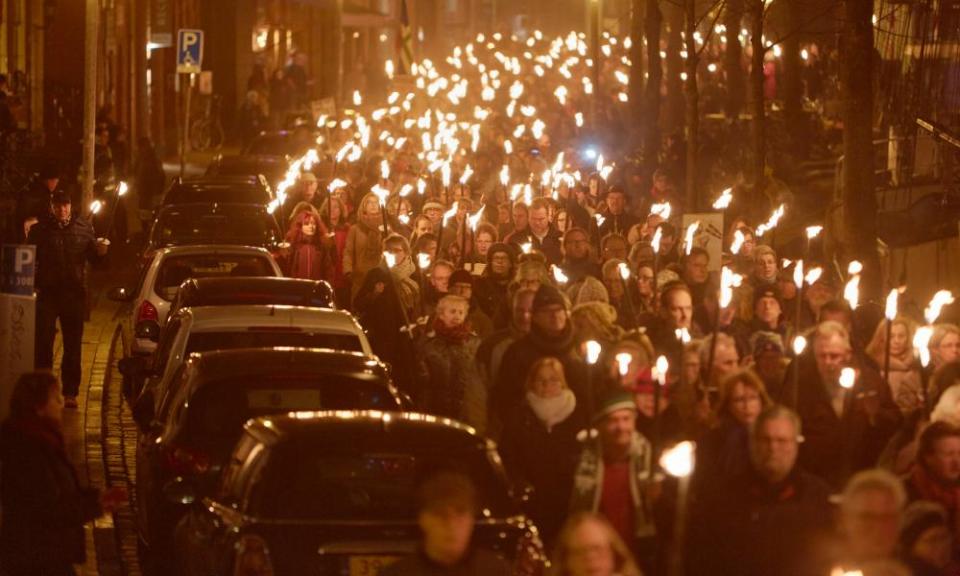Gas field earthquakes put Netherlands’ biggest firms on extraction notice

Two hundred of the Netherlands’ biggest companies have been told by their government to stop sourcing fuel from a major Dutch gas field within four years following a series of increasingly significant earthquakes.
Extraction from the Groningen field, one of Europe’s richest sources of gas, is operated in a joint venture between Royal Dutch Shell and ExxonMobil, but has been capped in recent years by ministers due to seismic activity in the area.
Following a quake two weeks ago which registered at 3.4 on the Richter scale - the second-strongest recorded above the gas fields and the biggest in five years - the country’s minister for economic affairs, Eric Wiebes, put major corporations on notice this week.
Wiebes told the firms that the “phasing out” of Groningen gas was unavoidable and that they needed to make a transition to alternative energy sources by 2022. “My ministry will be in touch with you shortly to talk about the issue and reach a joint decision,” the minister wrote to the firms. “In the coming period, the government wants to phase out this consumption more quickly, so that by 2022 no industrial large-scale users using Groningen gas will in principle be measured.”
Ben Samuel, of the energy data firm, ICIS, said the impact on the UK would be limited, as the country did not use the low calorific gas produced in Groningen. However, he said that a shortening of supply on the continent had the potential to increase prices. “Everyone is waiting to see what the impact will be and the final decision in terms of reduction,” he said.

When the Groningen field was discovered in 1959 it was at the time the largest natural gas field in the world. Extraction has been reduced since 2014 due to damage inflicted on local homes and businesses.
According to a lawsuit being pursued by 3,500 victims, an estimated 100,000 houses in Groningen have together lost an estimated €1bn in value due to seismic activity.
In April, a Dutch court instructed the public prosecutor to investigate the joint venture over its alleged failure to carry out risk assessments after 1993, at which point the connection between earthquakes and gas extraction had been discovered.

 Yahoo News
Yahoo News 